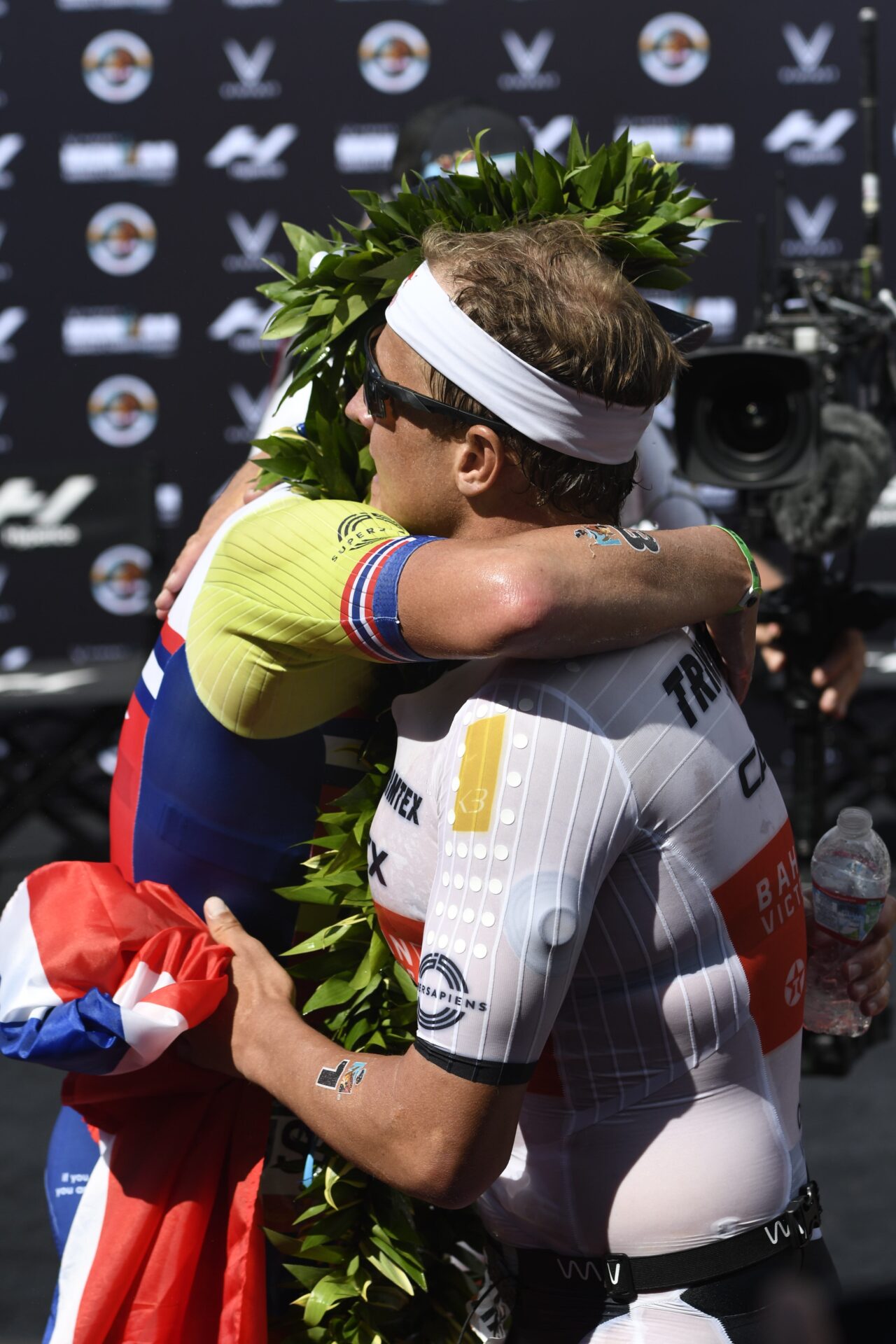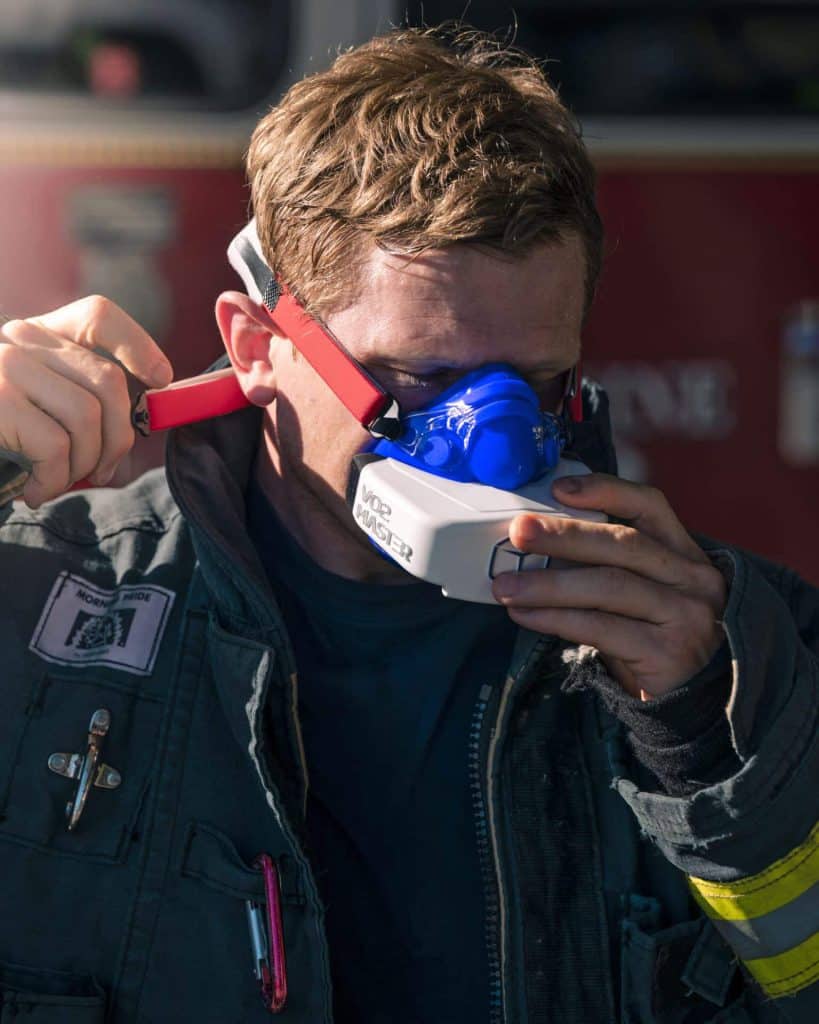The Norwegian Method: Kristian Blummenfelt and Gustav Iden on Camp, Altitude, and Enjoying Training
In episode 4 of The Norwegian Method, Kristian Blummenfelt and Gustav Iden talk with host Dr. David Lipman about training camp, altitude, and enjoying the process.

This is the fourth episode in season two. If you haven’t yet listened to Episode 3, click here to read our nine highlights and listen to the episode in full.
In Episode 4 of The Norwegian Method Podcast’s second season, presented by Santara Tech, host Dr. David Lipman talks with Olympic gold medalist and three-time World Champion triathlete Kristian Blummenfelt and three-time World Champion and Kona Ironman record holder Gustav Iden.
Together, they discuss:
- How training camp is going in Spain’s Sierra Nevada mountains
- The experience of living at training camp
- What it’s like to be trained by Olav Aleksander Bu
- The differences between training at high altitude and sea level
- The value of finding enjoyment in your training
Check out our six highlights from the episode.
1. Training Camp Update from Sierra Nevada

Kristian and Gustav both agree that they enjoy the lifestyle of being in training camp.
At the moment, Kristian is introducing more race-pace training into his regimen. Gustav is treating things like it’s his comeback season, learning to find fun in his sessions again as he recovers from his injury.
The boys are both looking forward to getting the opportunity to start training together again.
2. The Experience of Training Camp vs. Being at Home
The boys live full-time on-site when they’re at training camp. While training at home is focused, being in training camp really comes with a focused mission.
At camp, everything is convenient and close together, but it can be challenging living out of their luggage.
Gustav explains that he finds it easier to identify an area of focus while in training camp and then use that time to improve upon it.
Kristian’s sole mission at camp is to prepare for the 2024 Olympic Games in Paris.
While the physical output of training camp is obviously challenging, the boys agree that the social element can add an extra dimension, and sometimes their social batteries run low.
3. How New Athletes Join the Boys at Training Camp

Kristian and Gustav will often meet other athletes at races, feel they’re good company, and mesh well together.
So, they’ll meet up again and train together.
The boys explain that it’s nice to train with more people because it provides more social input. If it’s a natural fit, they match with the team, and they’re giving back to the group, it’s nice to share the training load.
On the other hand, it can be challenging since Kristian and Gustav are both dialed into their own training programs. The added dynamics of welcoming new athletes into training camps can also be difficult. They don’t always mesh, and it doesn’t always work out.
4. Kristian and Gustav’s Thoughts on Being Trained by Olav Aleksander Bu
When asked about the experience of being trained by coach Olav Aleksander Bu, Kristian and Gustav have nothing but positive things to say.
They both feel privileged to be coached by him and share that he is one of the most dedicated, knowledgeable coaches in the world.
Olav constantly teaches them and helps them develop as athletes and humans.
5. The Differences Between High-Altitude and Sea-Level Training

Throughout any given training season, Gustav and Kristian train at both high altitudes and sea level.
Kristian doesn’t feel the altitude very much and can run almost the same threshold efforts at high altitudes as he does at lower ones.
For Gustav, his high-altitude training is more focused on volume and getting his numbers back to normal post-injury before getting more intensity in the mix.
When it comes to altitude training, it’s all about timing. The boys typically train at altitude at earlier points in the season where training volume is lower, then move to sea level as intensity picks up.
6. The Importance of Finding Enjoyment in Training
There’s no doubt that triathlon training is challenging, especially when you’re competing at the highest levels.
But whether you’re a recreational triathlete or a pro, one thing remains constant: it’s vital to find enjoyment in the training you’re doing.
Dr. Lipman explains that, from the outside, people might think Gustav and Kristian are machines. But, in reality, they have a lot of fun at training camp and work hard to keep the vibes high.
They explain that if you’re always complaining during training, it messes with your mind. So, if you tell yourself you’re enjoying it, you will.
Gustav shares that it’s been hard to find that enjoyment and stay positive while working through his injury, but it’s crucial that he’s able to do so.
If you have to do four hours of training in the pouring rain, you can either complain about it or you can keep in mind the reasons why you’re doing it and find enjoyment in the process.
That’s the key to success.
If you’d like to learn more, you can listen to episode 4 in its entirety. You can also find brand-new video content and previous episodes from The Norwegian Method on the VO2 Master blog.
